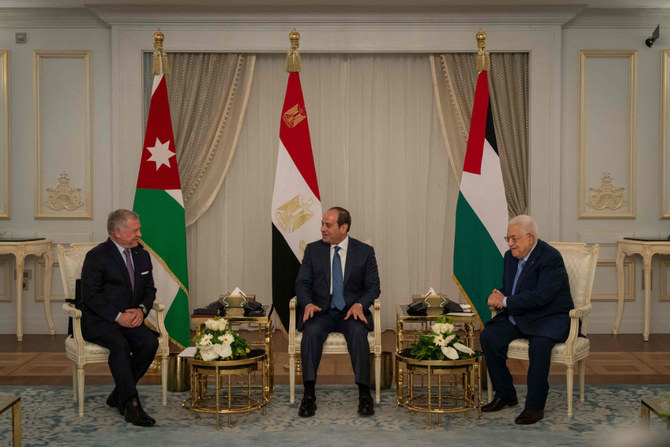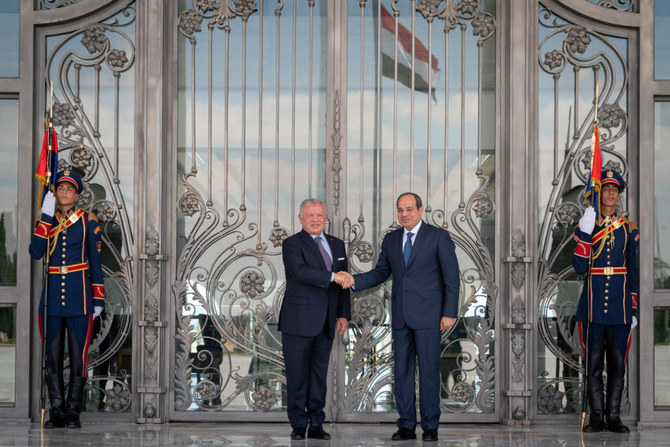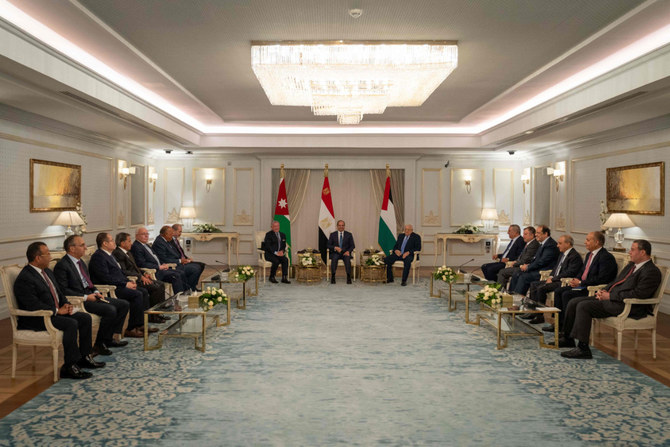





CAIRO: Egyptian President Abdel Fattah El-Sisi on Monday received a visit from Jordan’s King Abdullah II. Their meeting came ahead of a tripartite summit the same day between Egypt, Jordan and Palestine, in the northwestern city of New Alamein on the North Coast, to discuss the latest developments in the Palestinian cause.
Ahmed Fahmy, a spokesperson for the Egyptian presidency, said the president and the king discussed a number of issues and expressed their satisfaction with the distinguished relationship between their countries.
They also shared their aspirations for enhancing relations in ways that benefit the interests of their nations and their peoples, at a bilateral level and within the framework of a tripartite cooperation mechanism with Iraq, especially at the economic and commercial levels, and discussed a number of regional and international issues of common concern.
The two leaders also reviewed developments related to the Palestinian issue and agreed to strengthen the efforts by their nations to provide full support to “the brothers in Palestine, and work to revive the peace process” to help achieve a just and comprehensive solution to the Palestinian issue in accordance with international legitimacy.
King Abdullah thanked Egypt and El-Sisi for hosting the tripartite summit, and then the two leaders joined Palestinian President Mahmoud Abbas for the meeting.
During a tripartite meeting, the leaders discussed “the development of the Palestinian cause” and expressed their support for a “two-state solution” to the Israeli-Palestinian conflict with east Jerusalem as the future Palestinian capital, Fahmy said in a later statement.
In the final communique from the summit, El-Sisi and Abbas stressed the importance of the historical Hashemite custodianship of Islamic and Christian holy sites in Jerusalem, and its role in preserving their Arab identity.
Last week, Egyptian Prime Minister Mostafa Madbouly co-chaired the 31st session of the Jordanian-Egyptian Higher Committee with his Jordanian counterpart, Bishr Al-Khasawneh, at the latter’s office in Amman.
During the meeting they witnessed the signing of 12 agreements for enhanced bilateral cooperation in a number of sectors. They included a memorandum of understanding for cooperation in the field economic and development policies, and others related to financial controls, an executive program in environmental protection, and the field of social affairs.